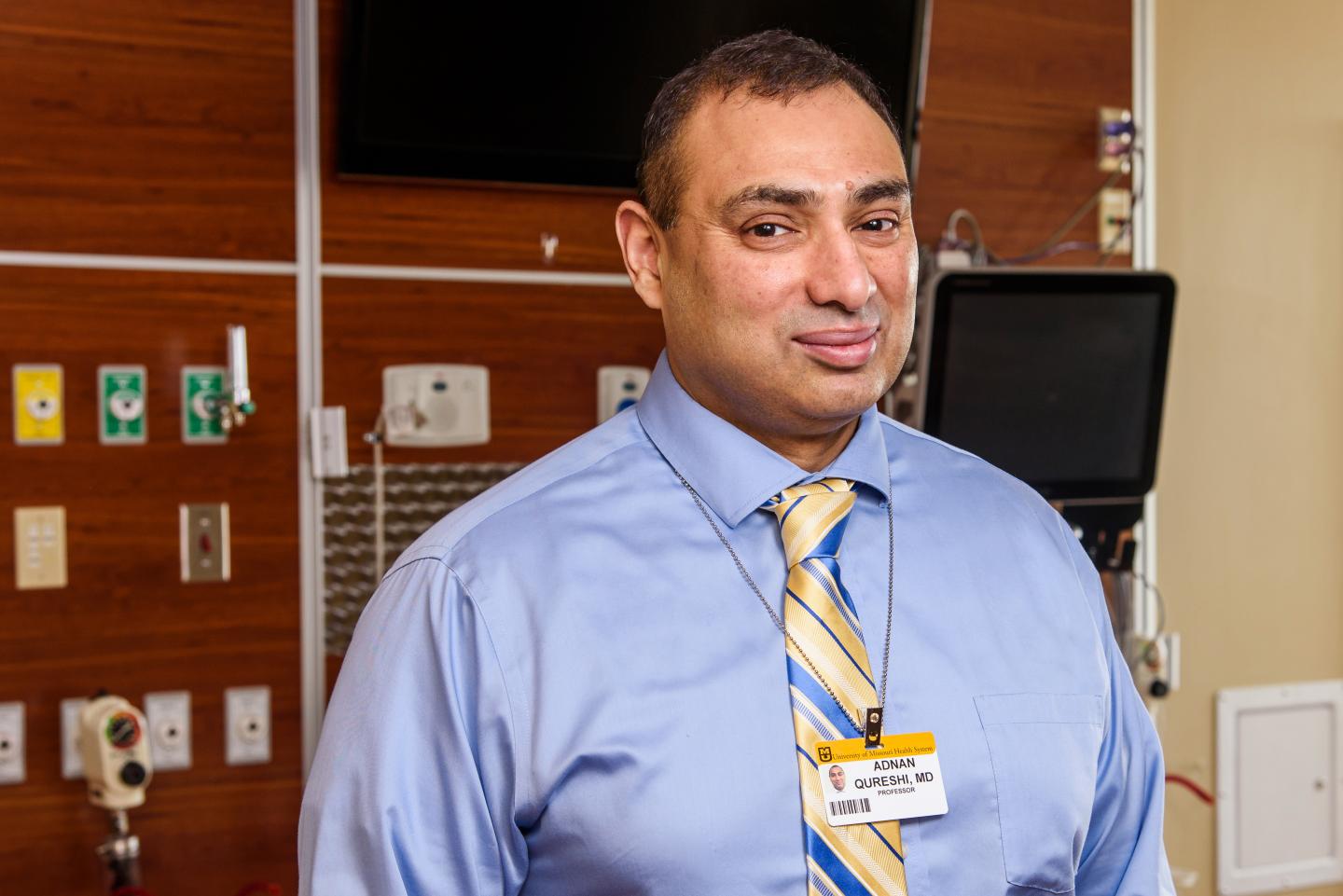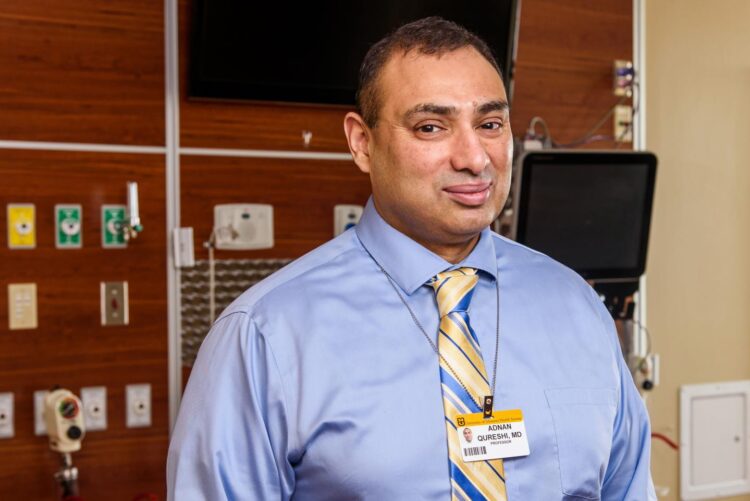Study identifies key issue for patients undergoing brain procedure while awake

Credit: Justin Kelley
Multiple studies have evaluated the incidence of back pain among patients who undergo catheter-based heart procedures while conscious. But the impact of back pain on patients who undergo similar procedures for the brain has not been previously examined. These minimally invasive brain procedures are also typically performed while the patient is awake and require an even longer immobilization period.
Researchers from the University of Missouri School of Medicine and MU Health Care performed a prospective study of neuroendovascular patients and found more than 40% suffered back pain during the procedure, signaling a need for clinicians to be more proactive in addressing this complaint.
“Pain management is increasingly recognized as an important marker of high-quality care and is related to patient satisfaction,” said lead researcher Adnan I. Qureshi, MD, a professor of clinical neurology at the MU School of Medicine. “The relatively high prevalence of back pain in patients undergoing neuroendovascular procedures while awake must be recognized, and strategies to reduce the occurrence need to be identified.”
Qureshi’s study included 242 patients undergoing neuroendovascular procedures. Clinicians asked each patient about the presence and location of back pain immediately after their procedure. One hundred patients (41.3%) reported back pain during the procedure, with a median severity of 5 on a 10-point scale. More than 75% of those patients reported pain in the lumbar spine.
“The history of previous back or neck surgery was significantly associated with the occurrence of moderate to severe back pain,” Qureshi said. “However, there was no significant difference in the frequency of moderate to severe back pain in patients who were undergoing a procedure lasting more than 60 minutes, compared to shorter-length procedures.”
Qureshi’s team noted that the high frequency of back pain was reported despite a large proportion of patients receiving intravenous pain medications during the procedure.
“Since our intravenous fentanyl dose was not based on patients’ body weight, we tried to identify any role underdosing may have played in those with high body mass index or those with previous neck or back pain with tolerance to opioids,” Qureshi said. “However, our analysis found underdosing was not a factor.”
The next question clinicians must answer is what strategies can be used to reduce the frequency and intensity of back pain during these procedures. Options range from a pre-procedure nonsteroidal anti-inflammatory medication to premedication with a combination of oral and intravenous medications.
“Further research will be needed to determine what combination of analgesics and sedation methods are optimal to achieve a successful outcome without patient discomfort,” Qureshi said.
###
In addition to Qureshi, the study authors include fellow MU School of Medicine collaborators Camilo R. Gomez, MD, professor of clinical neurology; Brandi French, MD, associate professor of vascular and clinical neurology; Farhan Siddiq, MD, assistant professor of neurological surgery; Iryna Lobanova, MD, research specialist in the Department of Neurology; and Vamshi Balasetti, MD; neurology fellow.
Their study, “Intraprocedural Back Pain Associated with Awake Neuroendovascular Procedures,” was recently published in the journal Neuroimaging. The authors of the study declare that they have no conflicts of interest related to this study.
Media Contact
Eric Maze
[email protected]
Original Source
https:/
Related Journal Article
http://dx.





